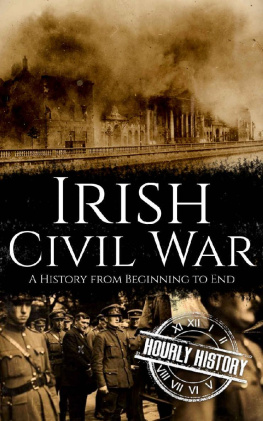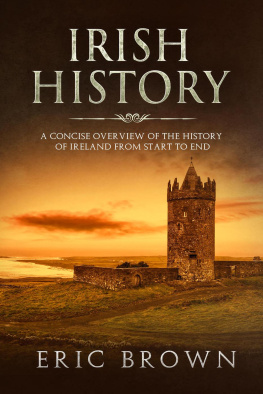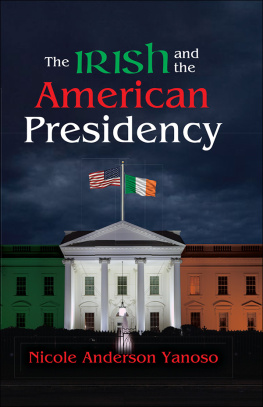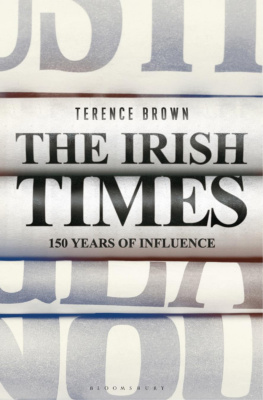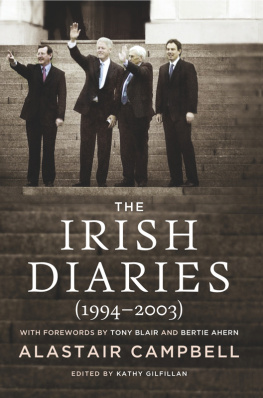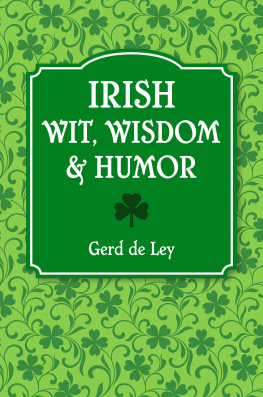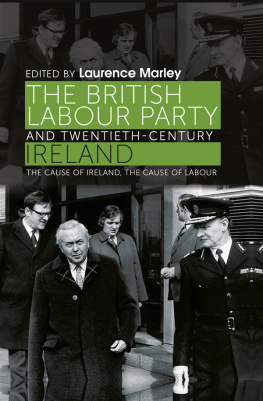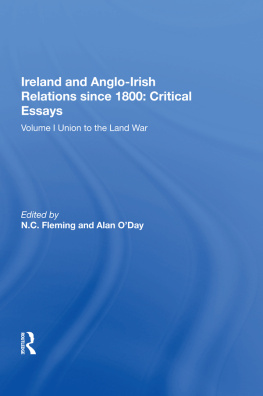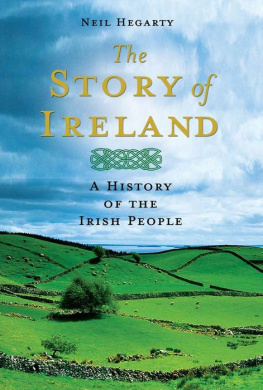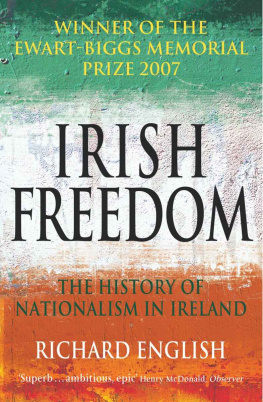I should like to acknowledge particularly the assistance of my secretary, Sharon Kelly, in the preparation and presentation of this book, and also to express my gratitude to Sen OKeeffe and Peter OConnell of Liberties Press for the speed and efficiency with which they brought it to print. And I am grateful to my daughter Mary for permission to use her painting Garret Reflecting with Friends for the cover of the book.
*
The publishers would like to acknowledge the following, in whose publications earlier versions of some of the essays in this collection first appeared: Mercier Press for Eamon de Valera: The Price of His Achievement, from De Valeras Irelands, edited by Gabriel Doherty and Dermot Keogh (2003); the Royal Irish Academy for The Origins, Development and Present Status of Irish Neutrality, from Irish Studies in International Affairs, Vol. 9 (1998); Cambridge University Press for The Origins and Rationale of the Anglo-Irish Agreement of 1985, from Northern Ireland and the Politics of Reconciliation (1993), edited by Dermot Keogh and Michael H. Haltzel; the British Council for The Normalisation of the IrishBritish Relationship, from Britain and Ireland: Lives Entwined (2004); and Columba Press for Church, Society and Family in Ireland, from Between Poetry and Politics, edited by Linda Hogan and Barbara FitzGerald (2004). The publishers have made every effort to trace holders of copyright material and would be happy to correct any oversights in this regard in future printings of the book. The maps that appear between pages 16 and 17 are reproduced courtesy of the Royal Irish Academy.
Two years ago I published Reflections on the Irish State, comprising a dozen essays which sought either to fill a gap left by an absence of cross-fertilization between our political and economic historians or to deal with other aspects of the Irish State and Irish society that seemed to me to have been inadequately treated in works available to the general reader.
But during the last ten years I have also had occasion to write or speak about other aspects of recent Irish history, including Northern Ireland, and about issues involving aspects of social policy and global politics. A few of these contributions have appeared as chapters of books edited by others and I am grateful for permission to include here revised versions of those contributions but most of them originated as lectures delivered in some of the score of countries where during the last decade I have been asked to address various audiences. It has been suggested that, in anticipation of reaching the age of eighty in early 2006, I publish a number of these in a second volume of Reflections.
The first chapter in this volume summarises work I undertook between the late 1970s and the early years of this century on the geographical pattern of the decline of the Irish language in the eighteenth and nineteenth centuries, the results of which appeared in two papers published by the Royal Irish Academy, respectively in 1984, when I was Taoiseach, and in 2002. These papers drew on data in population censuses between 1851 and 1911 on language-speaking by age, which because of statistical problems with the data had not previously been used by historians or geographers. The presentation of these censuses derived data in the form of detailed maps three of which are reproduced in this volume, challenged earlier theories about the timing of this language decline.
Other historical essays compare and contrast, for the first time, I believe, the reactions of Irish people to the two political and economic unions into which Ireland entered in 1800, with Britain, and in 1972, with Europe and discuss the roles of Lloyd George and de Valera in twentieth-century Irish history. Another essay deals with the manner in which, in the aftermath of the Civil War, the first government overcame great difficulties within as well as outside the government itself, to establish a stable Irish State. This historical section also includes essays on the circumstances in which the new Irish State sought to Catholicise and Gaelicize our society during the first half-century of independence, and on the evolution of Irelands particular form of neutrality.
The second section contains essays describing, from my personal experience and from contemporary records, the origins, rationale and negotiating process that led to the 1985 Anglo-Irish Agreement and, second, reflections on the combination of factors independence, EU membership, rapid economic growth, and the evolution of a common IrishBritish approach to the ending of IRA violence that had led by the end of the twentieth century to a normalisation of the historically troubled, centuries-old relationship between Ireland and Britain. Finally, I reflect on the possible future of Northern Ireland with the devolved power-sharing government that, after IRA decommissioning and an end to criminality by IRA members, will hopefully emerge in the near future.
The third section looks further afield. The first essay in this section traces the origins of recent trans-Atlantic differences and mutual misunderstandings back to the emergence in Europe in the second half of the twentieth century of a quite new and in many ways revolutionary set of moral values in respect of international relations, at a time when the United States was moving in an opposite direction, towards an enhanced belief in the use of power to achieve its objectives. Another essay in this section examines the complex interaction of Irish, British and American approaches to the Northern Ireland problem, and a third discusses Europes role in a globalised world.
In the final section, the concept of civic republicanism as it has developed since the French Revolution is contrasted with what has come to be known as republicanism in Ireland. Other essays reflect on the Church, society and family in Ireland.
I hope that some at least of the issues addressed here will stimulate discussion and debate.
Garret FitzGerald
October 2005
I am neither a historian, nor a geographer nor a linguistic expert. But all three disciplines interest me, and for much of my life I was puzzled about aspects of the process by which the Irish language was displaced by English throughout most of Ireland. I was quite unconvinced by what passed for conventional wisdom, viz. the suggestion that its displacement was due to the introduction of national primary education after 1831 or to the Famine. Both of these factors came much too late to have been more than contributory factors to the concluding stages of what had been a very prolonged process of anglicisation in Ireland.
Then, some time in the late 1960s, I heard it said that the nineteenth-century Irish Censuses of Population contained material on Irish-speaking by ages of the population, and I immediately realised that, by drawing on data on Irish-speaking amongst the oldest age groups in the earlier Censuses, it might be possible to deduce something of the geographical pattern of Irish-speaking back to the late eighteenth century. Here, I felt, was something that might be worth looking into further, when an opportunity arose to do so.
Then, when in 1977 I was elected leader of the Fine Gael Party and started to travel the country in a bid to reorganise the party into an effective political machine, I was casting around for some activity that would offer me relief and distraction from this fairly demanding political task something that I could undertake during the many hours I would spend being driven at weekends around what were then forty-one parliamentary constituencies.


